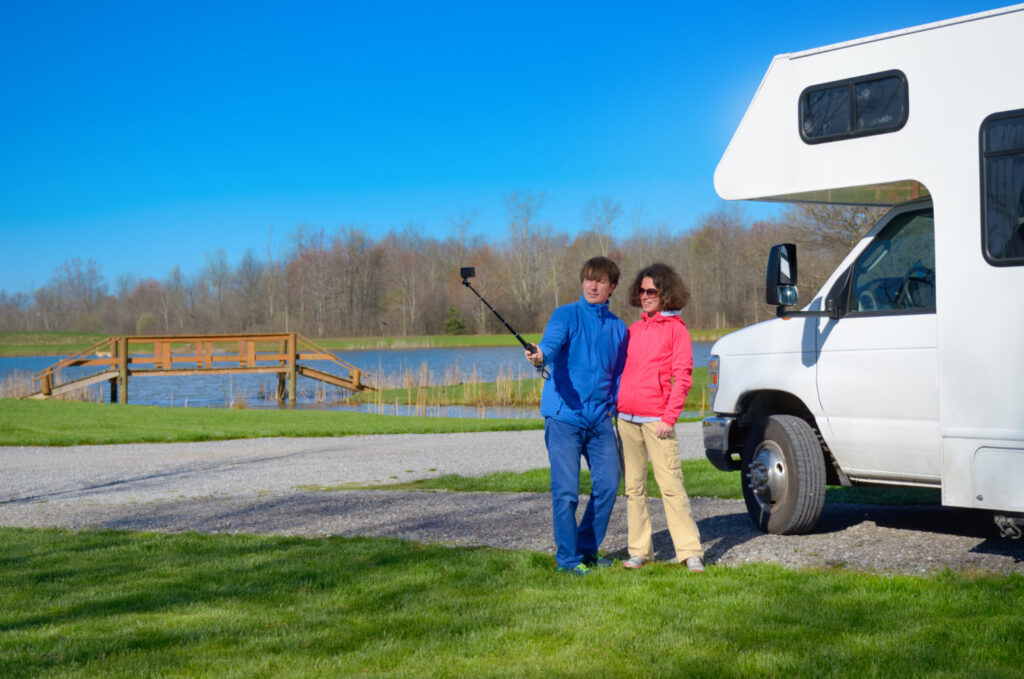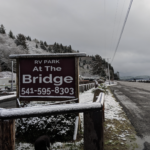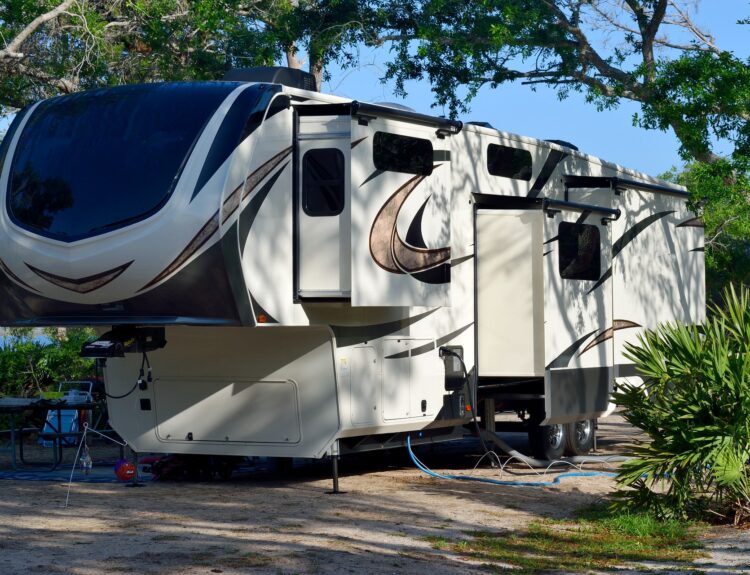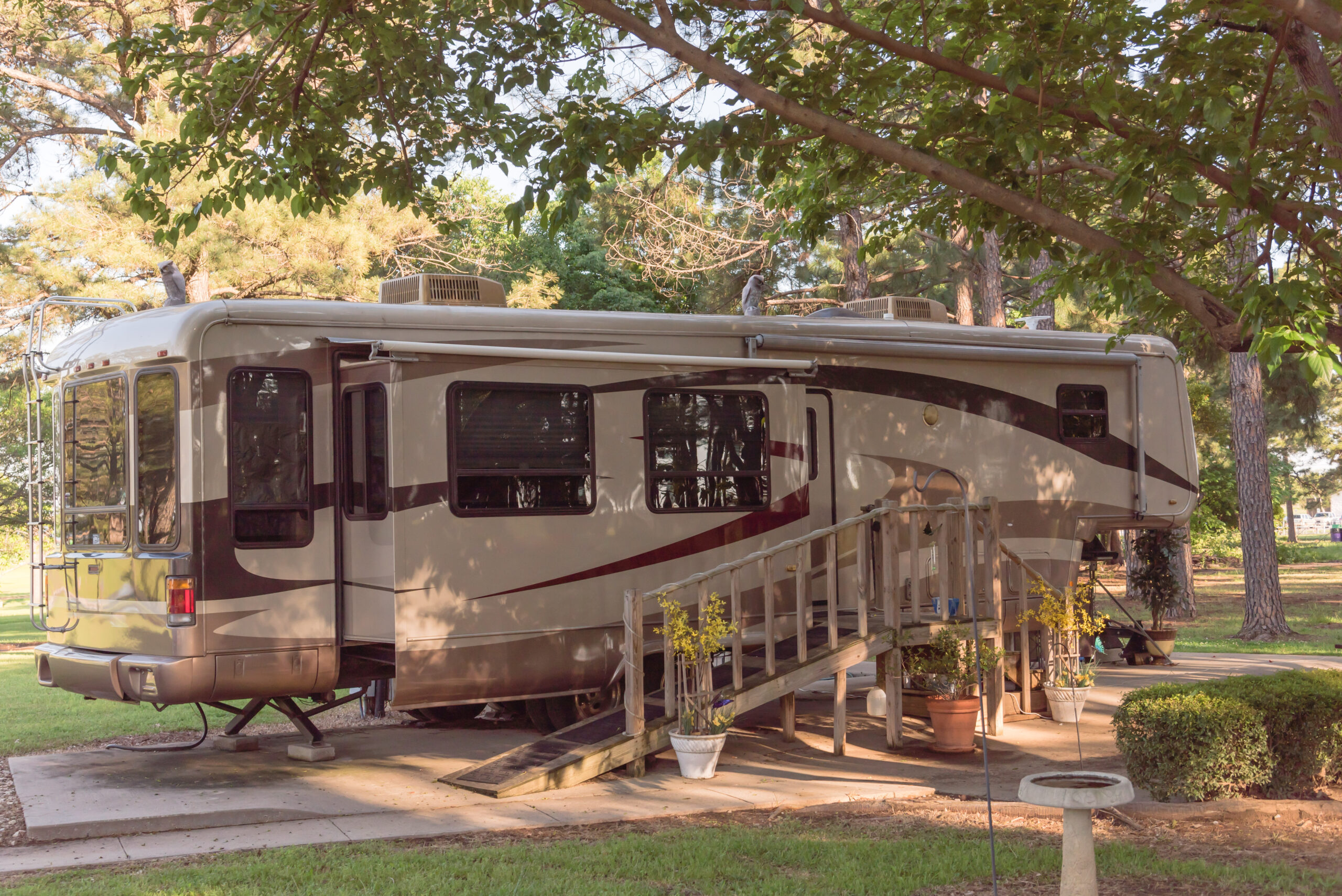In today’s digital age, reviews and social interactions shape guest decisions long before they arrive. Your RV park online reputation can be the difference between a full campground and an empty one (if you don’t use any tips to improve it). A single unanswered review or an outdated website can deter bookings, while a well-managed online presence builds trust, increases visibility, and drives reservations.
Managing your reputation online isn’t just about putting out fires—it’s about building a brand that travelers love and trust. These RV park online reputation tips will help you take control of your digital presence, improve guest engagement, and stand out in a competitive market.
Key Takeaways:
- A strong RV park online reputation boosts bookings and customer trust.
- Managing reviews effectively can enhance your RV park’s credibility.
- Consistent social media engagement strengthens your park’s image.
- A well-optimized website improves online visibility and customer confidence.
- Monitoring your online presence helps prevent reputational damage.

Why Online Reputation Matters for RV Parks
Your RV park online reputation is the first impression guests have of you, and there’s tips to improve it. Most guests will research your park online before booking, reading reviews and browsing your website and social media. A strong online presence, backed by positive feedback, reassures them that your park is worth their time and money.
Reputation also influences your search visibility. Parks with better reviews and consistent engagement are more likely to rank higher in Google searches, increasing organic traffic to your website and booking platforms. Think of it as your digital word-of-mouth—it travels fast and reaches far.
Parks with good reputations also earn more. Higher ratings allow you to charge premium rates, as travelers are more likely to pay for a location that consistently delivers a great experience. Protecting and growing your digital reputation is an investment that pays off in increased bookings and long-term success.
Managing Online Reviews Effectively
Reviews are digital word-of-mouth, and they carry serious weight. Managing them effectively means encouraging positive ones, addressing negative ones professionally, and focusing on the platforms that matter most.
Encouraging More Positive Reviews
Satisfied guests often need a nudge to leave a review. Most people won’t take the time unless prompted, even if they had a great experience. The best time to ask is during checkout or in a follow-up email. Include a direct link to your preferred review site, and make it simple for them to share their experience. Personalize your message—mention their stay or compliment their setup to make it feel sincere.
Offering small incentives, such as a future discount, early check-in, or entry into a giveaway, can significantly increase participation. Make sure any incentive complies with the customer reviews platform’s guidelines to avoid violations. You can also use signage at your park encouraging reviews or even QR codes at key areas to prompt action.
How to Respond to Negative Reviews Professionally
Bad reviews are inevitable. What matters is how you respond. Acknowledge the guest’s experience, express empathy, and offer a resolution. Avoid generic responses—customize each reply to show you care. For example, “We’re sorry you had a long check-in wait, John. We’re actively working to speed up our process during peak hours.”
The goal is to demonstrate your commitment to improvement. A respectful and thoughtful response can often soften a bad review’s impact and may even result in the reviewer updating or removing their feedback. Never argue or place blame publicly; take complex discussions offline by offering to continue the conversation via phone or email.
Best Review Platforms for RV Parks
Focus your review marketing strategy on high-impact platforms. Google Reviews influences search rankings and is the most visible to potential guests searching for places to stay. Yelp and Facebook offer additional visibility and social proof, especially for travelers using mobile apps.
Don’t ignore RV-specific platforms like:
- Campendium – A trusted platform for full-time RVers.
- RoverPass – Popular for booking and managing stays.
- RV LIFE Campgrounds – Offers detailed reviews from serious travelers.
These platforms give you direct access to your niche audience and often offer options to manage your listing or respond to guest feedback. Prioritize keeping your listings updated across these platforms with accurate contact info, amenities, and photos.

Leveraging Social Media for a Positive Image
Social media is more than a place for updates—it’s a powerful tool for building community, sharing stories, and enhancing your reputation. Done right, it keeps your park top of mind for past and future guests.
How to Engage with Guests on Facebook and Instagram
Social marketing efforts start with being active with a good content marketing strategy. Post regularly with a mix of content: behind-the-scenes photos, scenic views, local events, and special offers. Make your park feel personal, approachable, and fun. Use Stories and Reels to show real-time experiences at your campground.
When guests comment or message you, respond promptly and kindly. Answer questions, thank reviewers, and join in conversations about travel to improve customer satisfaction. Use polls or questions to get input from followers. Engagement shows guests that your business is responsive and caring, not just transactional.
User-Generated Content and Testimonials
Travelers trust other travelers. Encourage guests to share their experiences by tagging your park and using branded hashtags. Repost their content (with permission), and consider featuring testimonials in a recurring social series or “Guest of the Week” spotlight.
You can run hashtag campaigns like #CampingWithUs or #YourParkNameExperience to promote sharing. User-generated content builds authenticity, reaches new audiences, and adds credibility far beyond what typical ads can do.
Dealing with Negative Comments on Social Media
Social media is public, so how you handle criticism matters. If someone posts a complaint, respond quickly with empathy and facts. Publicly acknowledge their concern, then invite them to contact you privately for resolution.
Avoid deleting negative comments unless they’re abusive or violate platform rules. Deletion can backfire and appear as censorship. Instead, show your willingness to listen and improve. Most social audiences respect transparency and professionalism, even when a mistake is made.

Optimizing Your Website for Trust and Credibility
Your website is your digital front door. It should build confidence and make it easy for guests to take the next step—whether that’s booking a site or contacting your staff.
Why an Updated Website Matters
Modern travelers expect a fast, mobile-friendly, and easy-to-navigate website. Outdated layouts, broken links, or missing information immediately raise red flags. Invest in high-quality photography and keep content updated with seasonal hours, rates, events, and park news.
Include clear CTAs (calls-to-action), such as “Book Now” or “Check Availability.” Make it easy to reserve a site, read policies, and get in touch. A clean and responsive design signals professionalism and trustworthiness.
Showcasing Guest Testimonials and Reviews
Highlight real customer satisfaction stories prominently on your homepage or a dedicated testimonials page. Consider integrating a live Google or Facebook review feed so your site always reflects up-to-date feedback.
Use quotes, star ratings, and even guest-submitted images to add authenticity. Testimonials act as social proof and help new visitors feel confident that your park is a safe, enjoyable, and quality choice.
SEO Best Practices to Rank Higher in Searches
Search engine optimization (SEO) helps your site rank for keywords potential guests are typing. Use phrases like “RV park in [city/state]” or “pet-friendly campground near [attraction]” in your page titles, headings, and meta descriptions.
Create blog posts that answer common guest questions (e.g., “Best RV routes in [your area]” or “The right RV park near [your area]”). Ensure fast load times, SSL security, and mobile responsiveness—these are all SEO ranking factors. Strong SEO not only boosts visibility but also increases credibility in the eyes of searchers.

Monitoring Your Online Reputation Proactively
Reputation management isn’t set-it-and-forget-it. You need to monitor your digital presence regularly to stay ahead of issues and spot opportunities to improve.
Best Reputation Management Tools for RV Parks
Automated tools make it easier to stay informed. Use platforms like:
- Google Business Profile alerts: Notifies you when someone leaves a review.
- ReviewTrackers: Consolidates customer reviews from multiple platforms in one dashboard.
- Hootsuite or Sprout Social: Monitor and respond to social media comments across accounts.
These tools help you save time and respond faster, ensuring that no feedback goes unnoticed. They’re especially helpful for larger parks or teams managing multiple platforms.
How to Set Up Google Alerts for Your Business
Google Alerts is a free and easy way to stay in the loop. Visit google.com/alerts and enter terms like your park name, branded hashtags, or related keywords. Choose how often you want updates (daily, weekly), and where alerts should be sent.
Set alerts for variations of your park’s name, common misspellings, and combinations like “RV park reviews [your location].” You’ll get an email any time your brand is mentioned on the web.
The Importance of Regular Reputation Audits
Schedule quarterly or bi-annual audits to assess your RV park online reputation health. Review your ratings across all platforms, response times, tone of voice in replies, and patterns in feedback. Are guests complaining about the same thing? Are there recent improvements going unmentioned?
Use this insight to guide operational improvements, train your team, or adjust your marketing focus. A reputation audit is your roadmap for continual growth and guest satisfaction.
Final Thoughts
In a competitive and ever-evolving industry, your RV park online reputation is more than just a reflection of guest experiences—it’s a key driver of your park’s success with these tips. By staying proactive, authentic, and engaged across all digital channels, you build a foundation of trust that keeps guests coming back and new ones clicking “book now.” Remember, your reputation doesn’t just live online—it lives in every interaction, every review, and every impression you leave behind. So take control of the conversation and let your campground’s story shine.
Frequently Asked Questions
1. How can I handle fake or misleading reviews about my RV park?
Start by reviewing the platform’s policy for flagging reviews. If the review violates guidelines or is clearly false, report it with any supporting evidence. Still, respond professionally and factually. Address the situation calmly and explain your side without accusing the reviewer. This demonstrates transparency to future readers and can protect your brand reputation even if the review stays up.
2. What are the best ways to encourage repeat guests to leave reviews?
Loyal RV park guests are your best advocates. Send a personalized follow-up email after their visit with a thank-you note and direct link to leave a review. Let them know their feedback gives you valuable insights to improve the park and support your team. If they return regularly, consider starting a loyalty program or offering exclusive perks in exchange for sharing their experience online.
3. How can I recover from a damaged RV park online reputation?
First, identify the root causes—whether it’s service issues, outdated facilities, or poor communication. Address those internally, and then relaunch your online presence with transparency. Share updates about improvements, respond to all feedback, and actively request new reviews to shift the narrative. Be consistent. Over time, fresh positive reviews will outweigh the negative, and trust will be rebuilt.
4. Are there legal risks involved in responding to online reviews?
Yes, if you disclose personal guest details or make defamatory claims in your responses. Stick to general facts and policies, and never include private reservation or billing information. When in doubt, keep the tone neutral and respectful. For repeated false claims or harassment, consult legal counsel before escalating the matter.
5. How does reputation management impact my RV park’s search ranking on Google?
Reviews directly influence your visibility in local search results. Google factors in review quantity, quality, recency, and response activity when ranking local businesses. Parks with higher star ratings and consistent engagement are more likely to show up on the map pack and in search listings. Managing your RV park online reputation with tips boosts both credibility and your discoverability.






